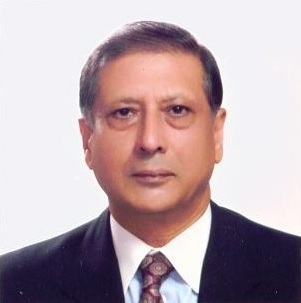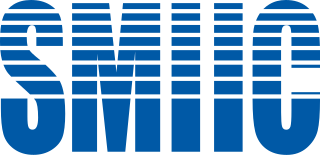
The Organisation of Islamic Cooperation, formerly the Organisation of the Islamic Conference, is an intergovernmental organization founded in 1969, consisting of 57 member states, with 48 being Muslim-majority countries. The organisation states that it is "the collective voice of the Muslim world" and works to "safeguard and protect the interests of the Muslim world in the spirit of promoting international peace and harmony".

The Maldives has remained an independent nation throughout its recorded history, save for a brief spell of Portuguese occupation in the mid-16th century. From 1887 to 1965, the country was a British protectorate while retaining full internal sovereignty. At its independence in 1965, the Maldives joined the United Nations on 20 September.

The Economic Cooperation Organization or ECO is an Asian political and economic intergovernmental organization that was founded in 1985 in Tehran by the leaders of Iran, Pakistan, and Turkey. It provides a platform to discuss ways to improve development and promote trade and investment opportunities. The ECO is an ad hoc organisation under the United Nations Charter. The objective is to establish a single market for goods and services, much like the European Union. After the dissolution of the Soviet Union, the ECO expanded to include Afghanistan, Azerbaijan, Kazakhstan, Kyrgyzstan, Tajikistan, Turkmenistan, and Uzbekistan in 1992.

The Organization of the Black Sea Economic Cooperation (BSEC) is a regional international organization focusing on multilateral political and economic initiatives aimed at fostering cooperation, peace, stability and prosperity in the Black Sea region. It traces its origin to 25 June 1992, when Turkish President Turgut Özal and leaders of ten other countries gathered in Istanbul and signed the Summit Declaration and the "Bosphorus Statement". BSEC Headquarters – the Permanent International Secretariat of the Organization of the Black Sea Economic Cooperation – was established in March 1994, also in Istanbul.

Ekmeleddin Mehmet İhsanoğlu is a Turkish chemistry and science history professor, academician, diplomat and politician who was Secretary-General of the Organisation of Islamic Cooperation (OIC) from 2004 to 2014. He is also an author and editor of academic journals and advocate of intercultural dialogue.
Odeen Ishmael was a career Guyanese diplomat.

The Organization of Turkic States (OTS), formerly called the Turkic Council or the Cooperation Council of Turkic Speaking States, is an intergovernmental organization comprising prominent independent Turkic countries: Azerbaijan, Kazakhstan, Kyrgyzstan, Turkey and Uzbekistan. It is an intergovernmental organization whose overarching aim is promoting comprehensive cooperation among Turkic-speaking states. First proposed by Kazakh President Nursultan Nazarbayev in 2006, it was founded on 3 October 2009, in Nakhchivan. The General Secretariat is in Istanbul.
The Fourth Extraordinary Session of the Islamic Summit was a conference organised by the Organisation of Islamic Cooperation (OIC) in Mecca on 14 and 15 August 2012. The venue of the conference was Al Safa Palace.

KAZANSUMMIT is one of the leading international economic events of the Russian Federation and the Organization of Islamic Cooperation (OIC). From the first day of its existence, the Summit has been held under the patronage of the President of the Republic of Tatarstan, Rustam Minnikhanov. Since 2009, KazanSummit is held annually and strongly supported by the Federation Council of the Federal Assembly of the Russian Federation and the Government of the Republic of Tatarstan. Top international investment conference remains the main and unique platform for cooperation between the Russian Federation and the OIC member states.

Javid Husain, is a Diplomat, from the Foreign Service of Pakistan, who has had a distinguished career during which he served as the Ambassador of Pakistan to the Netherlands (1992–1995), the Republic of Korea (1995–1997) and Iran (1997–2003). During his tenure at Tehran, he was also the Pakistan Permanent Representative to the Economic Cooperation Organization (ECO).
In 1991, Azerbaijan joined the Organisation of Islamic Cooperation and started to build relations with the organization. As a result, the ambassador of Azerbaijan to Saudi Arabia was given a mandate of permanent representative of Azerbaijan to the General Secretariat of the OIC in May 1994.
The Sixth Extraordinary Session of the Islamic Summit was a conference organized by the Organisation of Islamic Cooperation (OIC) in Istanbul on 13 December 2017. This summit resulted "Istanbul Declaration on Freedom for Al Quds."
The Organization for Economic Co-operation is an intergovernmental organization established in 1985 with cooperation of Turkey, Iran and Pakistan. The crucial goal of this organization is to achieve sustainable economic development, promote trade, integrate to the world economy and develop efficient transport system. Azerbaijan joined the organization in 1992. From August 2012 till 2016, the Secretary General of ECO is a representative from Azerbaijan.

The TURKPA in full, the Parliamentary Assembly of Turkic States, is an international organization comprising some of the Turkic countries. It was founded on 21 November 2008 in Istanbul. The General Secretariat is in Baku, Azerbaijan. The member countries are Azerbaijan, Kazakhstan, Kyrgyzstan and Turkey. Hungary and Northern Cyprus are observers.

Islamic Summit of the Organisation of Islamic Cooperation is one of the five highest decision-making bodies of the OIC, the other four being the OIC Council of Foreign Ministers, Standing Committees, Executive Committee, and the International Islamic Court of Justice. The Islamic Summit is a principle organ of the OIC focused on formulation, development, and implementation of decisions made by 57 member states. The Summit is attended by the concerned heads of state such as prime ministers, presidents, emirs and other equivalent heads.

The Charter of the Organisation of Islamic Cooperation, commonly known as OIC Charter, is the foundational treaty of the Organisation of Islamic Cooperation. Its foundational principles are based on 18 chapters that objectively maintains the purpose, focus, functions, and foundation of the OIC, an intergovernmental organization founded in 1969. The charter was formally signed on 25 September 1969 by the 57 member states, including 5 observer states. However, it was revised by the 11th summit held in Dakar, Senegal on 14 March 2008.

Standards and Metrology Institute for Islamic Countries is an intergovernmental and one of the 17 affiliated organizations of the Organisation of Islamic Cooperation. Its primary focus is on standardization and metrology technical elements. It is principally focused on the procedures for the removal of technical barriers concerning standards covering materials, manufacturers and products. It coordinates with the 37 member states and two observers for the administrative tasks for the trade development within the framework of the OIC.
The Seventh Extraordinary Session of the Islamic Summit Conference was an event organized by the Organization of Islamic Cooperation (OIC) on 18 May 2018 in Istanbul, Turkey. The conference was organized in response to the serious developments in the State of Palestine.
The Islamic Chamber of Commerce, Industry and Agriculture (ICCIA) is an affiliate of the Organization of Islamic Cooperation (OIC) and represents the private sector of 57 member countries. It is headquartered in Karachi, Pakistan. ICCIA was founded in 1978 and its key objective is to promote the role of the private sector in economic activity.
 Egypt (Joining date: 1969)
Egypt (Joining date: 1969) Libya (Joining date: 1969)
Libya (Joining date: 1969) Indonesia (Joining date: 1969)
Indonesia (Joining date: 1969) Togo (Joining date: 1997)
Togo (Joining date: 1997) Burkina Faso (Joining date: 1974)
Burkina Faso (Joining date: 1974) Malaysia (Joining date: 1969)
Malaysia (Joining date: 1969) Iraq (Joining date: 1975)
Iraq (Joining date: 1975) Tunisia (Joining date: 1969)
Tunisia (Joining date: 1969) Guyana (Joining date: 1998)
Guyana (Joining date: 1998) Algeria (Joining date: 1969)
Algeria (Joining date: 1969) Kazakhstan (Joining date: 1995)
Kazakhstan (Joining date: 1995) Turkey (Joining date: 1969)
Turkey (Joining date: 1969) Somalia (Joining date: 1969)
Somalia (Joining date: 1969) Bangladesh (Joining date: 1974)
Bangladesh (Joining date: 1974) Lebanon (Joining date: 1969)
Lebanon (Joining date: 1969) Turkmenistan (Joining date: 1992)
Turkmenistan (Joining date: 1992) Nigeria (Joining date: 1986)
Nigeria (Joining date: 1986) Albania (Joining date: 1992)
Albania (Joining date: 1992) Maldives (Joining date: 1976)
Maldives (Joining date: 1976) Uganda (Joining date: 1974)
Uganda (Joining date: 1974) Jordan (Joining date: 1969 )
Jordan (Joining date: 1969 ) Azerbaijan (Joining date: 1992)
Azerbaijan (Joining date: 1992) Mali (Joining date: 1969)
Mali (Joining date: 1969) Uzbekistan (Joining date: 1996)
Uzbekistan (Joining date: 1996) Iran (Joining date: 1969)
Iran (Joining date: 1969) Benin (Joining date: 1983)
Benin (Joining date: 1983) Mozambique (Joining date: 1994)
Mozambique (Joining date: 1994) Yemen (Joining date: 1969)
Yemen (Joining date: 1969) Mauritania (Joining date: 1969)
Mauritania (Joining date: 1969) Cameroon (Joining date: 1974)
Cameroon (Joining date: 1974) Niger (Joining date: 1969)
Niger (Joining date: 1969) Qatar (Joining date: 1972)
Qatar (Joining date: 1972) Pakistan (Joining date: 1969)
Pakistan (Joining date: 1969) Chad (Joining date: 1969)
Chad (Joining date: 1969) Senegal (Joining date: 1969)
Senegal (Joining date: 1969) Brunei
Brunei  Afghanistan (Joining date: 1969)
Afghanistan (Joining date: 1969) Ivory Coast (Joining date: 2001)
Ivory Coast (Joining date: 2001) Sierra Leone (Joining date: 1972)
Sierra Leone (Joining date: 1972) Oman (Joining date: 1972)
Oman (Joining date: 1972) Bahrain (Joining date: 1972)
Bahrain (Joining date: 1972) Djibouti (Joining date: 1978)
Djibouti (Joining date: 1978) Tajikistan (Joining date: 1992)
Tajikistan (Joining date: 1992) Kuwait (Joining date: 1969)
Kuwait (Joining date: 1969) Morocco (Joining date: 1969)
Morocco (Joining date: 1969) Gabon (Joining date: 1974)
Gabon (Joining date: 1974) Gambia (Joining date: 1974)
Gambia (Joining date: 1974) Palestine (Joining date: 1969)
Palestine (Joining date: 1969) Saudi Arabia (Joining date: 1969)
Saudi Arabia (Joining date: 1969) Guinea (Joining date: 1969)
Guinea (Joining date: 1969) Sudan (Joining date: 1969)
Sudan (Joining date: 1969) United Arab Emirates (Joining date: 1972)
United Arab Emirates (Joining date: 1972) Kyrgyzstan (Joining date: 1992)
Kyrgyzstan (Joining date: 1992) Guinea-Bissau (Joining date: 1974)
Guinea-Bissau (Joining date: 1974) Suriname (Joining date: 1996)
Suriname (Joining date: 1996) Comoros (Joining date: 1976)
Comoros (Joining date: 1976)








